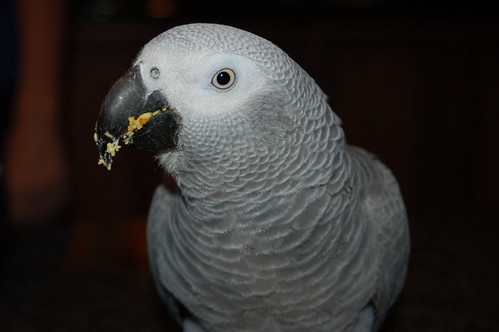
Q: Is fish safe for my bird?
-Sangita T., Pembroke, MA
A: Yes! There is such controversy surrounding fish these days! Can pregnant women eat it?? Should children eat it?? What about mercury??! I wish everyone would just dial it back a bit. Fish is a great food.
Seafood is a great source of protein and is low in fat, unlike many animal proteins. It contains Riboflavin (B2), Omega-3 fatty acids, carbohydrates, vitamin D, calcium, phosphorus and many minerals. These are present in higher amounts than in meats. Eating fish promotes heart health, reduces blood pressure, and promotes brain function, to name a few of the benefits, which far outweigh the risks.
That said, let’s talk about the risks. Mercury is a toxic heavy metal and pretty much all fish are going to contain some level of it. Mercury, is found in our waters both naturally occurring and as a result of industrial pollution (technically a form of mercury called methylmercury). The larger, longer lived, small fish-eaters such as the sharks, some tuna, and swordfish are those found to carry the higher levels.

High mercury levels are accumulated over time. The longer a fish lives, the longer it is around to absorb mercury and the higher their content will be. Mercury found in humans that eat these fish is based on their level of consumption. For those who eat less of it, the risks are negligible.
Offering these fish to our parrots in moderation will not cause them harm, but there are other types of fish which present less concern such as salmon, catfish, cod, pollack and canned tuna (only use water packed tuna). Shellfish such as crab, shrimp, scallops, and clams are also considered to be in the lower mercury group and are safe to enjoy. Fish should be baked, poached, broiled, or steamed without added salt or oil when intended for our parrot’s dining pleasure.

It is important to widely vary your parrot’s diet. If you are doing that, then the frequency with which they receive any type of food is moderated. This raises the probability that we aren’t offering too much of any one particular food. Keep this in mind when you serve fish and you will ensure that the overall diet is healthy, well rounded and safe.
Patty Jourgensen specializes in avian health, behavior and nutrition and has been working with and caring for rescue birds since 1987.


31 comments
Leave a comment